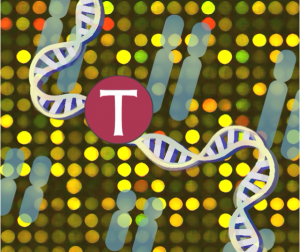Online Graduate Education in Biotechnology
I recently blogged about harnessing the power of bioinformatics for cancer research. An interested reader, Linda Zabriske, commented that the blogosphere (and government organizations such as the Bureau of Labor Statistics) has been gradually filling with talk about cancer research and its role in our future. Linda’s tool, the Online Graduate Programs, collates some of these articles and ideas and she’s co-written this month’s post with me, reflecting on Online Graduate Education in Biotechnology.
 In past decades, the field of biological science and engineering were considered separate and distinct. Biology dealt with the complexities and wonders of humans, animals and plants, while the engineering (and technology) revolved around mechanics, electronics, and other systems for developing new devices. Recently, however, scientists are creating ways to allow these schools of thought to interact with one another in new and exciting ways through biotechnology.
In past decades, the field of biological science and engineering were considered separate and distinct. Biology dealt with the complexities and wonders of humans, animals and plants, while the engineering (and technology) revolved around mechanics, electronics, and other systems for developing new devices. Recently, however, scientists are creating ways to allow these schools of thought to interact with one another in new and exciting ways through biotechnology.
These breakthroughs have generated a slew of breakthroughs in health, medicine, technology, ecology, computing, telecommunications, the list goes on, with new fields constantly emerging. Case in point: bioinformatics, which was the topic of another DNALC blog post recently. In response, there are several new virtual masters degree programs.
What is Biotechnology?
As part of my role as Evaluation Manager at the DNALC, I’m currently asking biotechnology teachers at community college across America to help me define the term ‘biotechnology.’ (The teachers are participating in an NSF-funded training program, Genomic Approaches to Biosciences). According to the Biotechnology Institute, a nonprofit group that promotes biotechnology education and initiatives, biotechnology is “the use of living organisms by humans.” While most observers associate biotechnology with scientists in white lab coats, its origins stem back to ancient times. Farmers would employ biotechnology techniques to crossbreed plants to withstand adverse weather conditions or to produce more food (see, for example, the chapter on domestication of corn in Weed to Wonder, available as a website, iPad app, or PDF). Livestock owners would selectively breed their animals to provide more meat, carry more weight or run faster in a race.
Importance of Biotechnology
Biotechnology is applying the familiar scientific disciplines of biology and biochemistry, along with the fields of physics, engineering, and computer science, to produce new developments that carry extraordinary potential for the future of mankind. Advances in genetic engineering, nanotechnology, and microbiology have expanded human understanding of some of the most basic and vital processes of life.
Applications of Biotechnology
While many of these research efforts involve medical applications, biotechnology is not limited strictly to prolonging and improving the human body. Agricultural applications, such as genetic engineering of plants and animals (e.g for biofortification), can do the work of several generations of crossbreeding in a much shorter time frame. Other efforts involve the development of biofuels, including biodiesel for use in automobiles, which can reduce the worldwide dependency on fossil fuels and other pollutants.
Careers in Biotechnology
With so many different applications for biotechnology, the opportunities for new careers have been growing at a staggering pace. The DNALC teacher training program mentioned above specifically aims to train graduates for careers in biotechnology, partnering with Bio-Link, the Next Generation National Advanced Technological Education (ATE) Center of Excellence for Biotechnology and Life Sciences. Some students will use their biotechnology degrees in cutting-edge laboratories around the world, while others apply their knowledge as physicians, public health officials, and policy makers. Students also explore the legal, ethical and business applications of biotechnology to understand and resolve the inherent conflicts in
these fields, and become informed citizens.
Degrees in Biotechnology
Two of the top-flight medical schools in the US are endeavoring to give students the online education they need to pursue a career in biotechnology. Harvard University’s Graduate Program in Biotechnology allows students to pursue advanced degrees online. Fields of study include Life Sciences, Management Principles, Bioengineering/Nanotechnology, and Bioinformatics, which is the application of computer technology to solving biotechnology issues. For nearly a century, Johns Hopkins University in Baltimore, Maryland, has been one of the leading medical schools in the country. Today, the school offers students four online degree programs in biotechnology. The programs cover topics ranging from entrepreneurship and federal regulations of the biotechnology industry, to the development of complex computer programs that analyze data from biotechnology experiments.
Just as communications technologies brought in thousands of new jobs in previous decades, biotechnology is revolutionizing the workplace in the 21st century. As the wave of advancing technology carries this field to new levels, the access to online classes in biotechnology has never been better.
And who knows, maybe one of the new grads may someone harness the power of bioinformatics to find a new treatment for cancer! Watch this space…
| Print article | This entry was posted by Amy Nisselle on July 6, 2012 at 12:19 pm, and is filed under Inside Cancer. Follow any responses to this post through RSS 2.0. You can leave a response or trackback from your own site. |


